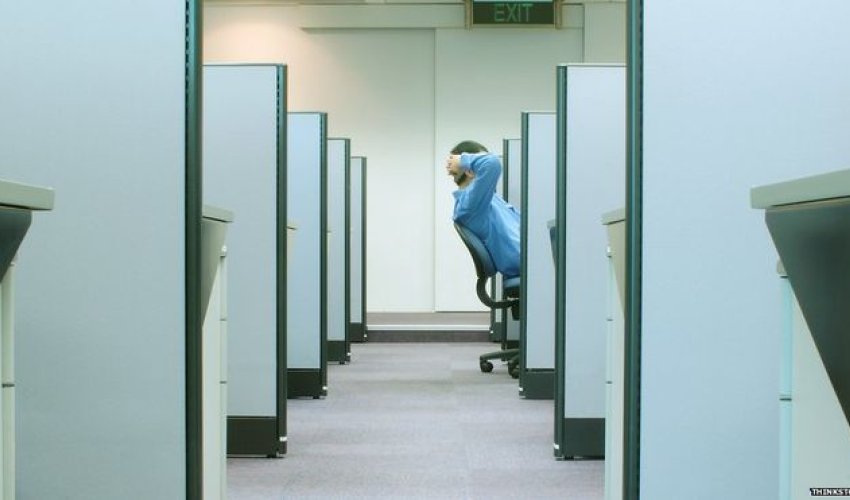Viewpoint: Why do people waste so much time at the office?

The workplace is where people go to work. But much of the day is increasingly padded out with less productive activities, writes Peter Fleming.
A few years ago a disturbing story appeared in the media that seemed to perfectly capture the contemporary experience of work and its ever increasing grip over our lives: "Man Dies at Office Desk - Nobody Notices for Five Days".
The case was unnerving for one reason mainly. People die all the time, but usually we notice. Are things so bad in the modern workplace that we can no longer tell the difference between the living and the dead?
Of course, the story turned out to be a hoax. An urban myth.
As it happens, each country has its own variation that still fools people when they periodically appear. In the US the dead person is a publisher. In other countries, a management consultant.
We might even embellish the story ourselves. Perhaps the dead accountant not only went unnoticed for five days but was rewarded with a promotion for all the extra hours and loyalty, possibly making vice president. In all variants of the myth the worker is never a woman which is interesting for its own reasons.
Isn't it strange that so many of us who encounter this apocryphal story genuinely shrug and mumble "Yeah, that's about right"?
Why does it resonate so well with our experiences of employment today? A number of reasons might be behind this.
First, it reminds us that the otherwise crazy idea of working non-stop for hours or even days on end has quietly become the new normal. Behaviour that our grandparents would have deemed insane is now rather pedestrian.
The average British worker spends 36 days a year answering work emails. London workers in particular receive close to 9,000 emails each year. As a result, work spills over into private time. One recent survey revealed that 80% of employers consider it perfectly acceptable to contact their employees outside business hours.
And then there's the commute. British workers waste 18 months of their lives commuting, which is often expensive and stressful.
All of this work comes at cost. Job-related illness, for example, is a growing problem in the UK and elsewhere, exacerbated by stress and more of us being overwhelmed by the "to do" list.
Making matters worse, in times of recession we are more willing to put up with horrible workplace environments, which adds to the pent-up frustration. A recent study found that job burnout is more adverse to your health than chain smoking.
Only in this context could we ever see accounts of having "worked to death" being reported in the corporate sector, as was the case with the Bank of America intern, Moritz Erhardt in 2013. He died of an epileptic seizure after working 72 hours straight. And let's not even mention the new phenomenon of work-inspired suicides that has followed in the long wake of the 2008 financial crisis.
But the "Man Died at Desk and Nobody Noticed" urban myth strikes a chord for another and more depressing reason. Yes, the office should have noticed the man was dead. Five days is a long time. But they also ought to have noticed that his work wasn't actually getting done.
Unfortunately, this is not how the modern workplace functions today. Take those 36 days spent on email. It would be simply impossible to fill every minute online with only productive work. The same goes for the long hours put in at the office.
Apart from getting the actual task done, which is typically completed in short bursts, there is also a good deal of messing about, chatting, paying the bills, surfing the net, daydreaming and waiting for the day to finish. Most importantly, much of our day is spent busy being busy rather than doing things that are socially useful.
This gives contemporary employment something of a ceremonial feel about it. Not only are we working more now than ever (or searching for it if unemployed) but a good deal of it is unnecessary.
(BBC)
www.ann.az
Similar news
Similar news

































 Photo
Photo 



 Video
Video 

